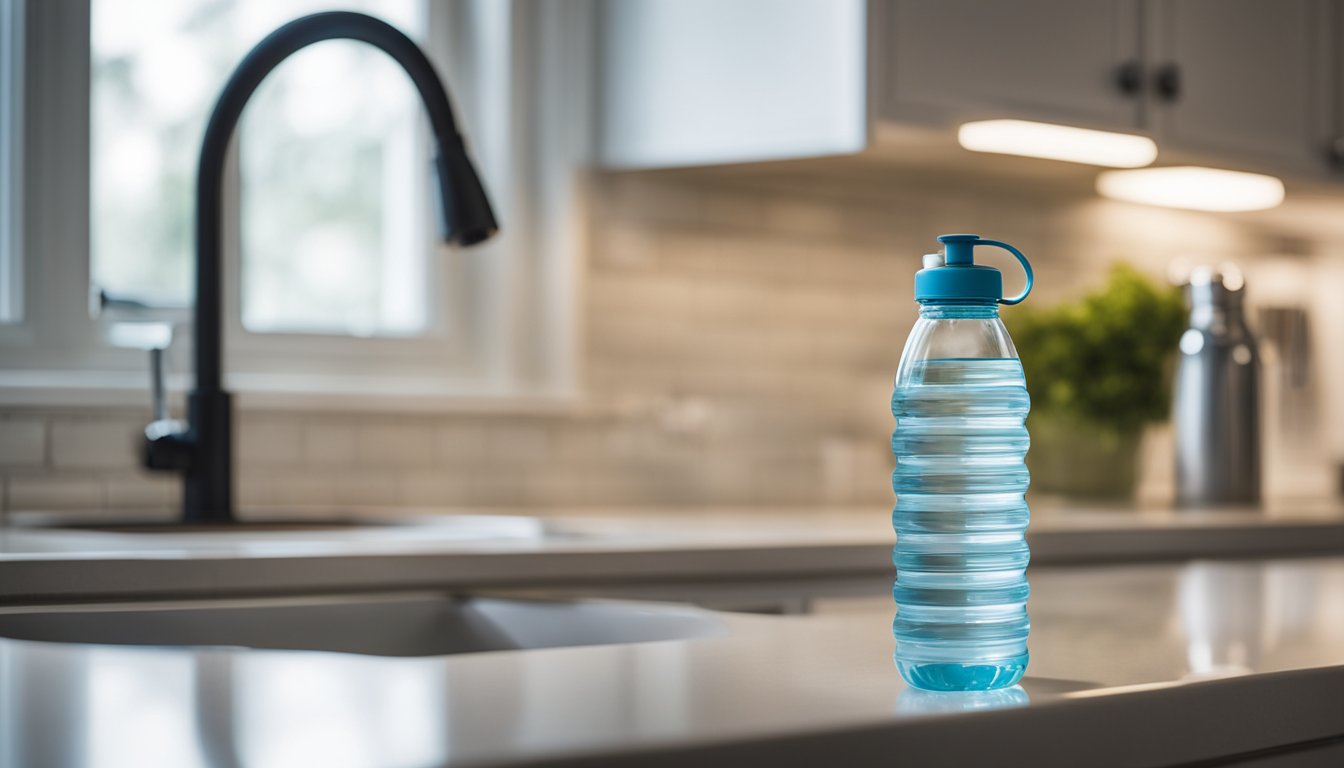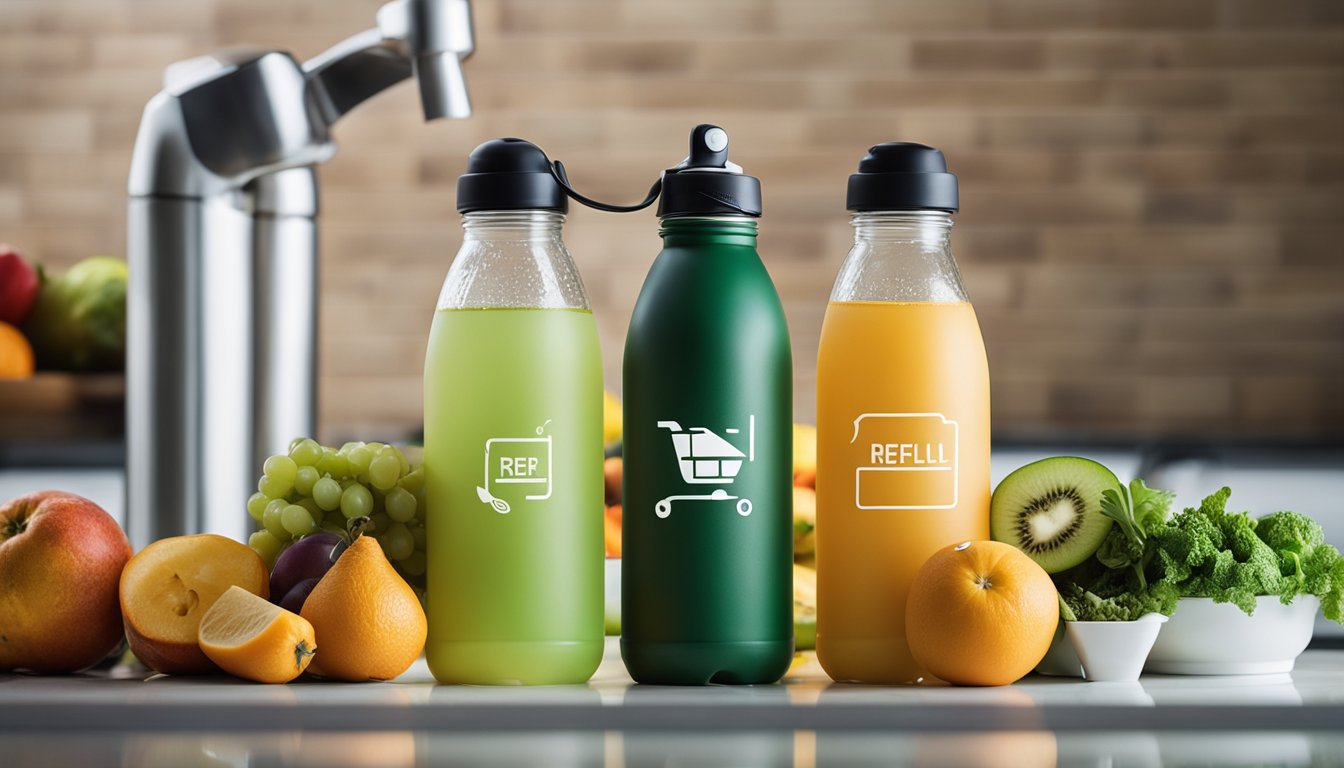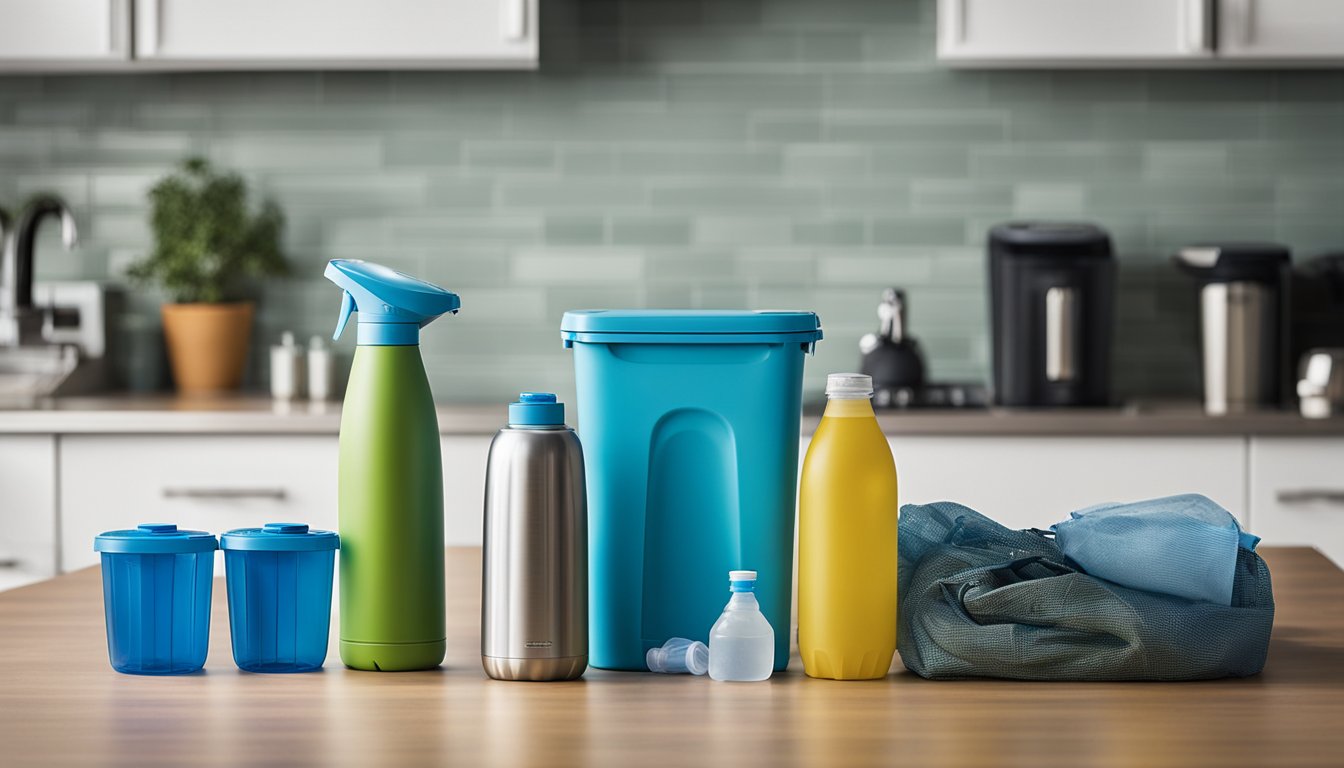Late updated: 01 Aug 2024 15:08
Written by: Sarah Hollister
Reducing Single-Use Plastic Bottles: Simple Steps for Daily Life
Reducing single-use plastic bottles in our daily lives is more crucial than ever as we face growing environmental challenges. By making simple changes, we can significantly reduce our plastic waste and contribute to a healthier planet. From carrying a reusable water bottle to choosing products packaged in sustainable materials, small steps can lead to big impacts.

Single-use plastic bottles are a major source of pollution, clogging our oceans and harming wildlife. Opting for alternatives like stainless steel or glass bottles not only cuts down on waste but also ensures we avoid the potential health risks associated with plastic. With numerous stylish and practical reusable bottle options available, switching to a more sustainable choice is easier than we might think.
By adopting these practices, we can inspire others in our communities to follow suit. Together, simple everyday actions can collectively drive significant environmental change and reduce the burden of plastic waste.
Key Takeaways
- Reusable bottles reduce plastic waste and pollution
- Alternatives to plastic bottles are healthier and more sustainable
- Community action amplifies environmental impact
Understanding the Impact of Single-Use Plastic Bottles
Single-use plastic bottles significantly affect various facets of our world, from contributing to climate change to harming marine ecosystems and even posing risks to human health.
Consequences for the Environment
Single-use plastic bottles are a major contributor to plastic waste. They often end up in landfills, where they take hundreds of years to decompose. During this process, they can release harmful chemicals, contributing to soil and water pollution. Additionally, the production of these bottles involves substantial greenhouse gas emissions, exacerbating climate change. The energy used in manufacturing and transporting these bottles further intensifies their environmental footprint.
Effects on Marine Life
Oceans are particularly affected by plastic pollution. Every year, millions of tonnes of plastic waste find their way into the ocean. Marine animals often mistake plastic fragments for food, leading to ingestion that can be fatal. For example, sea turtles frequently consume plastic bags, which they confuse for jellyfish, leading to digestive blockages and death. Microplastics, tiny plastic particles resulting from the breakdown of larger plastics, are also pervasive and have been found in various marine species, disrupting the food chain and potentially impacting human consumers.
Implications for Human Health
The impacts of single-use plastic bottles on human health are significant and concerning. Chemicals like Bisphenol A (BPA) and phthalates, used in plastic production, can leach into the water we drink from these bottles, posing health risks. Long-term exposure to these chemicals is linked to various health issues, including hormonal imbalances and reproductive problems. Furthermore, microplastics have been found in bottled water, raising potential health concerns regarding their ingestion and the long-term effects on our bodies.
By addressing the issues related to single-use plastic bottles, we can mitigate their widespread impacts on our planet and our health.
Practical Strategies for Reduction

Reducing the use of single-use plastic bottles involves adopting certain alternatives, improving recycling, and engaging in community initiatives. By making simple changes, we can collectively contribute to a cleaner environment.
Alternatives to Single-Use Plastic Bottles
Switching to reusable water bottles is one of the most effective ways to cut down on plastic waste. Stainless steel and glass bottles are durable, easy to clean, and can keep drinks at desired temperatures for longer periods. Bamboo alternatives offer a sustainable and biodegradable option.
For those who prefer convenience, collapsible silicone bottles are lightweight and portable. Embracing these alternatives not only reduces plastic use but also saves money over time as we avoid the continuous purchase of disposable bottles.
Improving Recycling and Circularity
Recycling plays a crucial role in reducing plastic waste. It's essential to understand and adhere to local recycling guidelines to ensure that plastic bottles are properly sorted and processed. Recycled materials should be incorporated into new products to promote circularity.
Setting up a home or local composting system can manage biodegradable waste efficiently. Using recycled materials in everyday products, such as clothing and furniture, furthers the cycle of reuse. Manufacturers should design products with end-of-life considerations, ensuring they can be recycled or composted effectively.
Community and Policy Initiatives
Community engagement and robust policies drive change on a larger scale. Supporting initiatives like plastic bans and community cleanup drives can make a significant impact. Participating in local activities, we can raise awareness and encourage others to adopt sustainable practices.
Advocating for policies that mandate reduced use of single-use plastics and promote recycling infrastructure is crucial. Forming or joining groups focused on environmental protection can amplify our collective voice, leading to substantial changes. By working together, we can push for policies that support reusable products and the proper management of plastic waste.
Together, these practical strategies can significantly reduce our reliance on single-use plastic bottles, fostering a more sustainable environment.
Frequently Asked Questions

Reducing single-use plastic bottles in our daily lives involves adopting sustainable habits and making conscious choices. This section addresses common queries and provides actionable advice.
How can individuals effectively minimise the use of plastic bottles in their daily routines?
Using reusable water bottles is a simple yet impactful step. Keeping a refillable bottle handy reduces the need for single-use plastics. Additionally, opting for filtered tap water over bottled water further diminishes plastic waste.
What are some practical alternatives to single-use plastic bottles for everyday hydration?
Consider stainless steel or glass bottles, which are durable and safe. Collapsible silicone bottles are also a space-saving option. These alternatives not only cut down plastic usage but also often maintain liquid temperatures for longer periods.
In what ways does single-use plastic consumption impact the environment?
Single-use plastics contribute significantly to pollution. They can take hundreds of years to decompose, leading to long-term waste problems. Moreover, plastic production emits greenhouse gases, exacerbating climate change.
Why is the reduction of single-use plastics crucial for ecological sustainability?
Reducing single-use plastics helps to mitigate pollution in oceans and landscapes. It conserves resources and reduces harmful emissions from plastic manufacturing processes. Thus, it supports a healthier ecosystem.
How can communities encourage the adoption of reusable containers to lessen single-use plastic pollution?
Communities can promote initiatives such as installing public water fountains and providing incentives for using reusable containers. Educational campaigns can raise awareness about the environmental benefits of reducing plastic use.
What legislative measures have been implemented to curb the prevalence of single-use plastic bottles?
Governments globally are introducing bans and taxes on single-use plastics. Policies mandating the use of biodegradable materials and encouraging recycling are becoming more common. These regulations aim to limit plastic waste and promote sustainable practices.
